15 Ways Home Telephones Shaped Family Life Before The Era Of Cell Phones
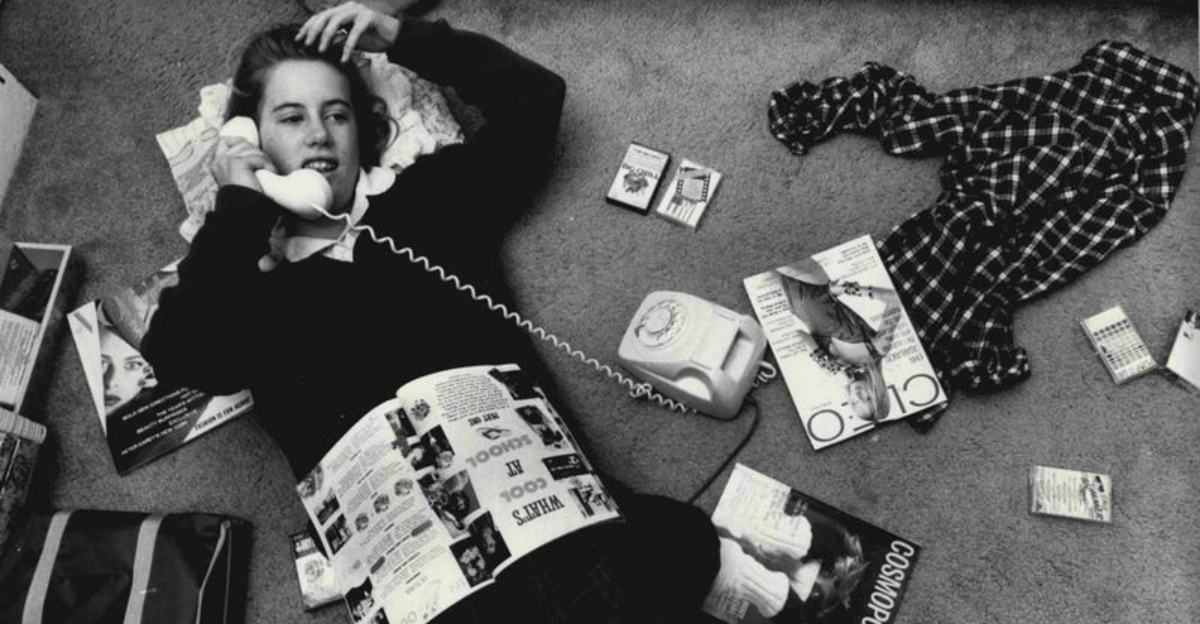
Remember the good old days when the household telephone wasn’t just a gadget—it was a fixture of family life? I sure do! Our family’s trusty beige rotary phone sat proudly on a little table in the hallway, tangled cord and all, like an honorary relative.
It rang with purpose—whether it was Grandma calling to chat, a classmate confirming homework plans, or a mysterious wrong number that sparked giggles and wild guesses. Back then, answering the phone was a family affair. You had to earn your phone time, often under the watchful eye of a sibling eager for their turn.
We memorized numbers, respected busy signals, and knew the pure thrill of getting a call just for us. Before smartphones made everything instant and private, home phones brought us together—literally. They created shared moments, quirky rituals, and a rhythm of communication that, in its simplicity, made everyday life feel special.
1. The Kitchen Command Center
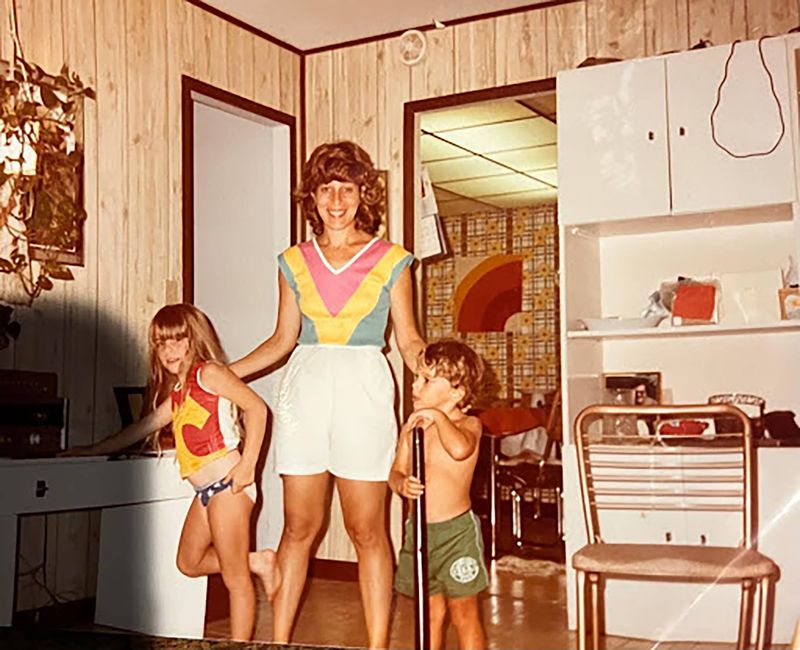
Our kitchen wall phone was practically mission control for the entire household! With its super-long curly cord that stretched across the room, Mom could stir spaghetti sauce while chatting with Aunt Linda about weekend plans.
Family phone books bulged with scribbled numbers, and nearby notepads captured messages for everyone. The wall beside our phone became a museum of takeout menus, emergency contacts, and school calendars.
Somehow, despite being just a plastic box with buttons, that kitchen phone knew all our family secrets. From birthday surprise planning to teenage crush confessions, those kitchen conversations shaped our shared history in ways my kids with their private text messages will never understand.
2. The Dreaded Dinner Disruption

Ring! Ring! Nothing scattered a peaceful family dinner faster than that shrill telephone bell. Forks would freeze mid-air as everyone exchanged glances to decide who’d answer.
Dad’s rule was ironclad in our house: “No answering during dinner unless it’s Grandma or the President.” Of course, we never knew who was calling until someone broke the rule and dashed to answer anyway. The telephone taught us the art of the quick meal negotiation—who would get up, who would take a message, and who would keep everyone’s food warm.
Those interruptions became such a part of our rhythm that modern silent-phone dinners almost feel too quiet to me now!
3. The Telephone Manners Bootcamp
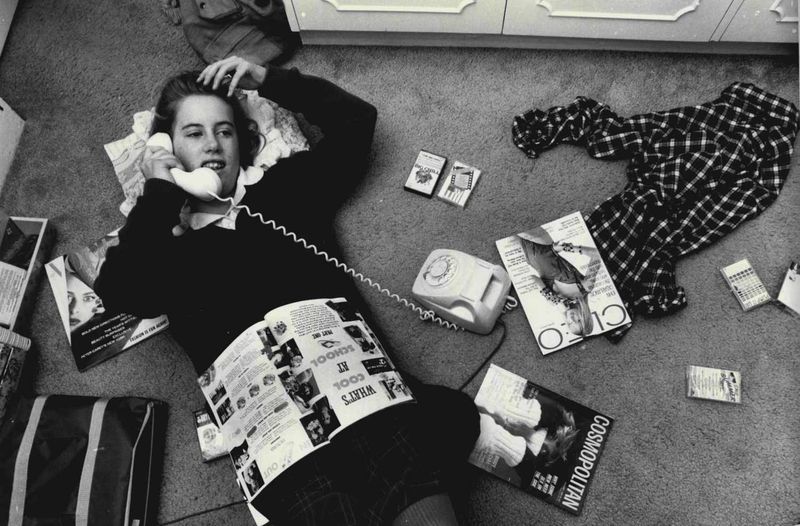
“Hello, Smith residence, Jenny speaking!” I practiced that greeting a hundred times before Mom deemed me ready for telephone duty. Home phones were our first formal introduction to adult communication skills.
Parents everywhere turned answering the telephone into an etiquette master class. We learned to speak clearly, take accurate messages, and—heaven forbid—never hang up without saying goodbye. The family phone taught us responsibility in a way smartphones never could.
My father’s stern lectures about “proper phone voice” still echo in my head whenever I answer a call. “It’s not just what you say, kiddo—it’s how you say it that tells people who we are as a family.” Talk about pressure for a nine-year-old message-taker!
4. The Teenage Cord Stretchers
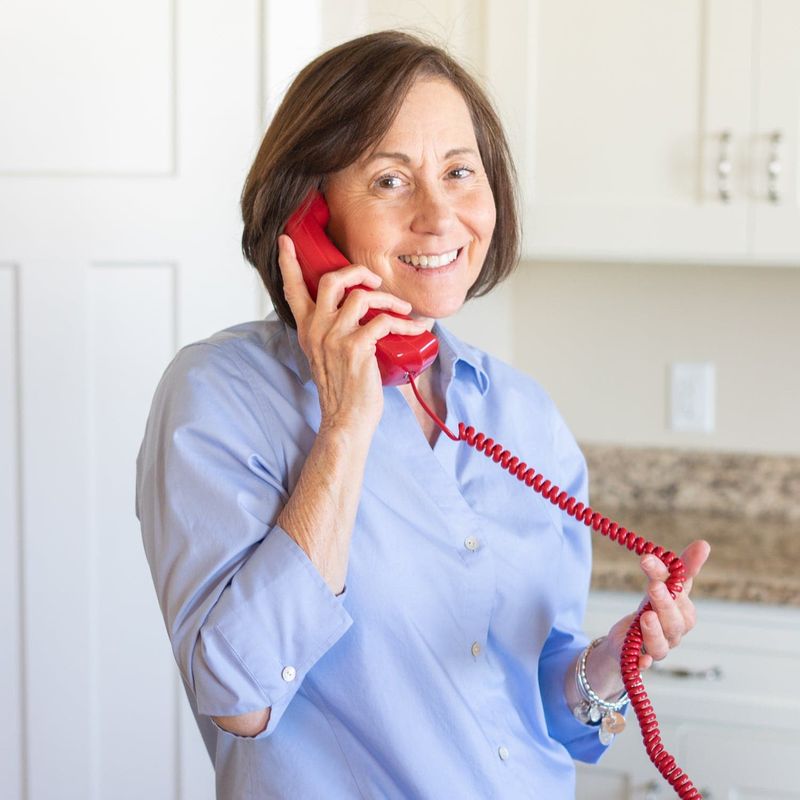
Teenagers were the ultimate telephone cord engineers! My sister could stretch our kitchen phone cord to nearly impossible lengths, creating a private nook behind the pantry door for her hours-long conversations with friends.
The battle for phone time created a fascinating family power dynamic. Parents set time limits while teens developed elaborate workarounds—whispering late at night or developing coded languages when others were in earshot. I once watched my brother conduct an entire conversation with his crush using only the words “homework,” “yeah,” and “later” while Mom stood nearby.
Those stretched cords symbolized our stretching independence—still connected to the family hub but reaching for privacy and personal identity in creative ways.
5. The Mysterious Busy Signal
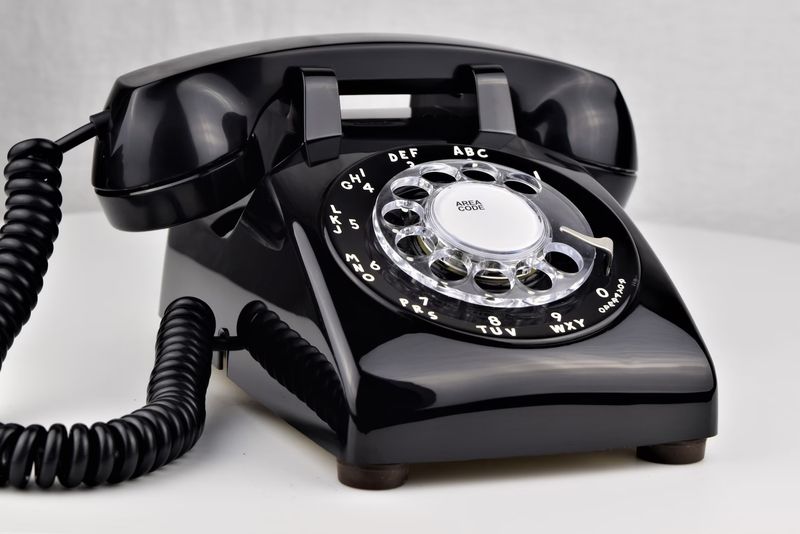
Beep-beep-beep—that busy signal was the soundtrack of frustrated communication! Unlike today’s instant access, reaching someone meant potentially hitting this telephonic brick wall multiple times.
Family arguments erupted over who kept the line busy for hours. I’ll never forget Mom’s exasperation discovering my sister had taken the phone off the hook just to avoid my grandmother’s weekly call. The busy signal created a unique family timing strategy—knowing when to call relatives based on their routines and habits.
Grandpa couldn’t be reached during Wheel of Fortune. Uncle Jim was always on the phone Sunday evenings. The busy signal taught us patience and planning in ways that instant messaging has completely eliminated for today’s families.
6. The Answering Machine Family Theater
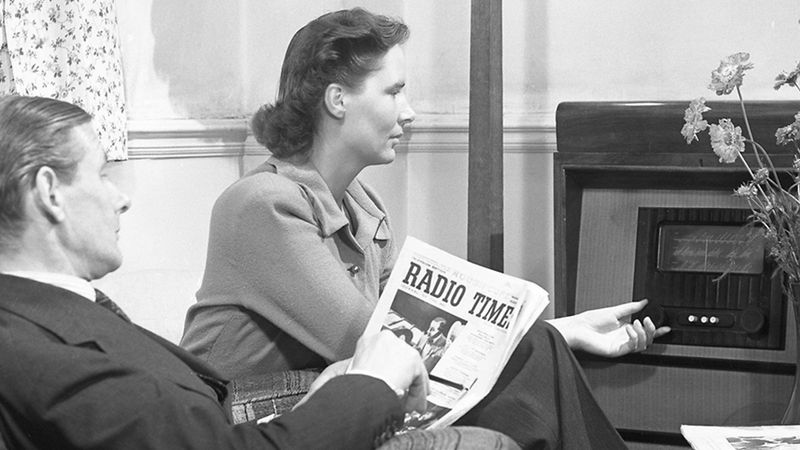
“You’ve reached the Johnsons. We can’t come to the phone right now…” Creating the perfect family answering machine message was serious business! Everyone had to participate, though someone always messed up the script.
Our machine turned ordinary messages into family entertainment. We’d gather around after school to hear who called, laughing at Aunt Martha’s longwinded stories or analyzing the tone in Dad’s boss’s voice. Some families even used their machines as primitive voicemail between members—”Kids, meatloaf in the fridge. Don’t forget to walk the dog!”
The blinking red light became a beacon of possibility—maybe that cute boy called! Perhaps Grandma sent birthday wishes! Each message brought the outside world into our shared family experience in a way text notifications never quite match.
7. The Long-Distance Budget Battles
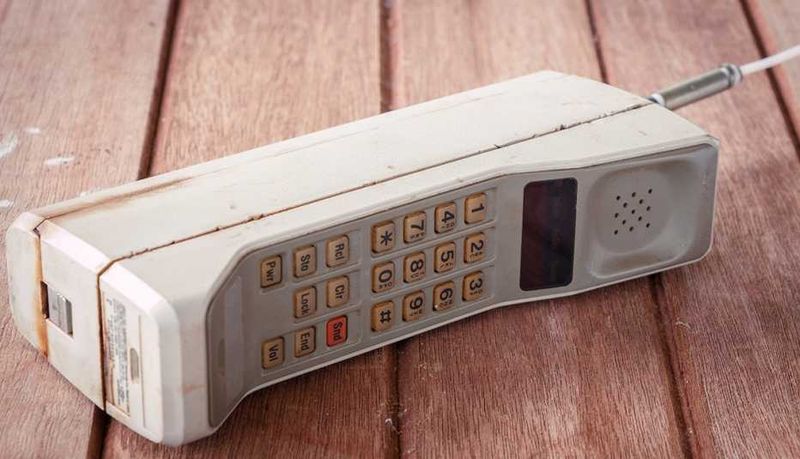
“Do you know how much that call cost?!” Dad’s face would turn fascinating shades of purple when the phone bill arrived showing long-distance charges. Those precious minutes talking to my cousin in California were apparently worth their weight in gold!
Long-distance calling created an entire family economic system. Calls were scheduled, timed with kitchen timers, and sometimes even scripted beforehand to maximize efficiency. Sunday evenings became sacred long-distance time when rates dropped.
My grandmother mastered the art of the three-minute check-in call. She’d rapid-fire questions at us—”Grades good? Eating vegetables? Still playing soccer?”—and somehow hang up exactly when the cheap rate period ended. These budget constraints made distant communication precious in ways unlimited calling plans have completely erased.
8. The Phone Book Detective Agency
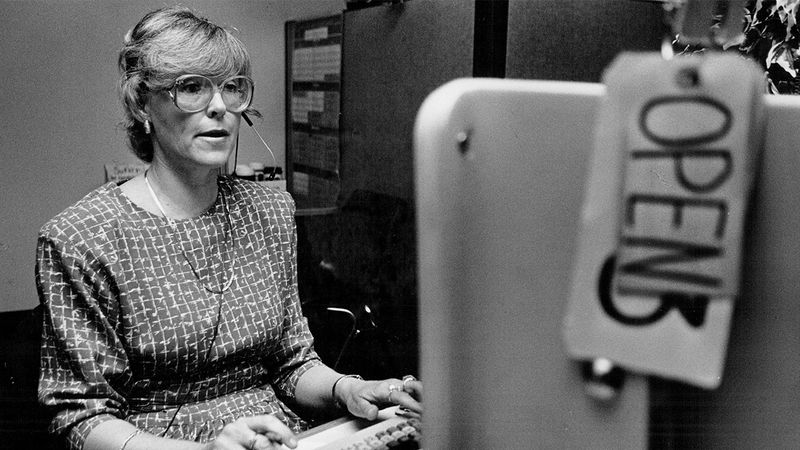
Before Google answered everything, the mighty phone book was our search engine! Finding someone’s number involved actual detective work—thumbing through thin pages, squinting at tiny print, and sometimes calling similar names until you hit jackpot.
Our family phone book was a historical document with crossed-out numbers, scribbled updates, and mysterious stars next to certain names. Mom’s system made sense only to her. “Three stars means they bring good casseroles when someone’s sick!”
Kids today will never know the satisfaction of slamming a heavy phone book closed after a successful number hunt. Or the family teamwork required when someone remembered only part of a name or address. “I think her last name starts with W and she lives near the library…” would launch a whole family into investigative mode!
9. The One-Ring Code Systems
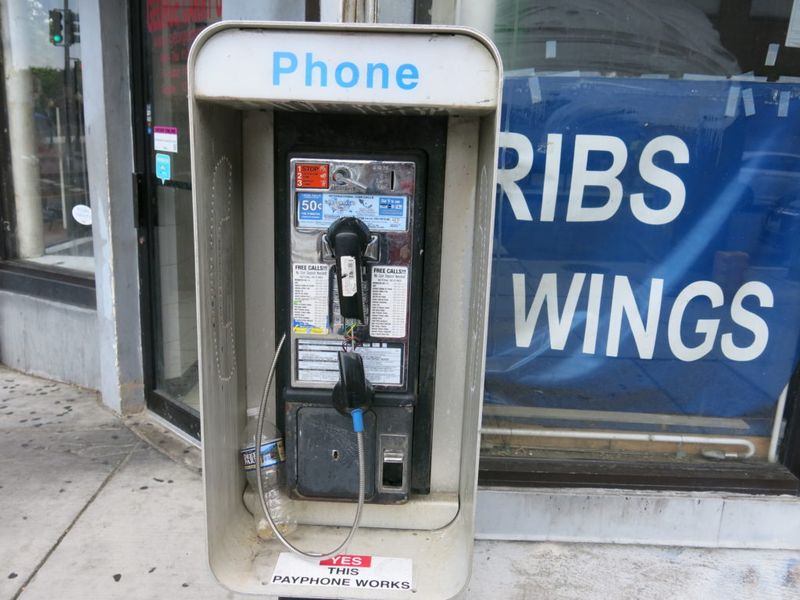
One ring and hang up meant “I arrived safely.” Two rings meant “Come pick me up now.” Every family developed their own secret telephone morse code to communicate without wasting precious calls!
My dad perfected the “call home collect” system when I was a teenager. When the operator asked for my name, I’d say “Practice is over” or whatever message needed delivering. Dad would decline the charges but get the information for free! These clever hacks weren’t just about saving money—they created special bonds through shared family secrets.
We felt like clever spies with our ring codes and signals. Mom knew exactly who was calling based on the time of day and ring pattern. “That’s your sister. She always calls twice if it’s important.” No caller ID needed!
10. The Cord-Tangling Family Dance
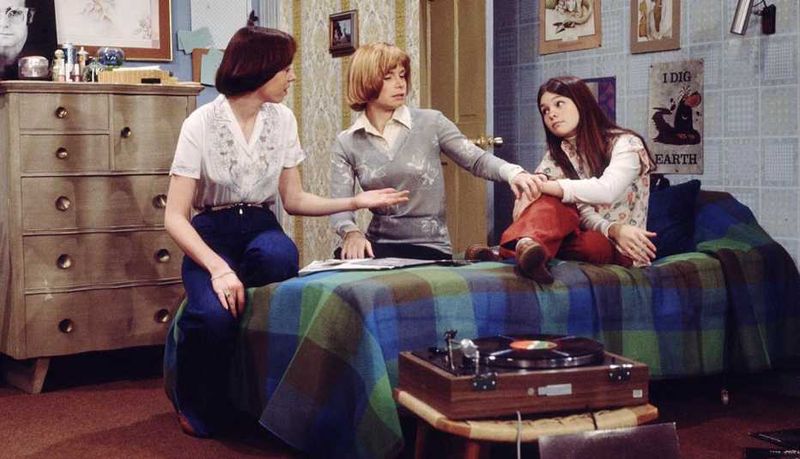
Watching my parents do the telephone cord tango around each other in our narrow hallway was better than any choreographed dance routine! As Mom stretched the cord to check something on the stove, Dad would duck under or leap over it like an Olympic hurdler.
Those cords created a physical connection to conversations. You couldn’t wander far, so talking on the phone meant staying anchored to a specific family space. The whole household learned to navigate around the person on the phone—lowering the TV volume, postponing vacuum cleaning, or using elaborate hand signals to communicate urgent needs.
Sometimes I miss that cord-imposed togetherness. When my teenager disappears into her bedroom with her cell phone, I think about how our shared telephone space kept family communication flowing—even when it was inconvenient!
11. The Prank Call Era
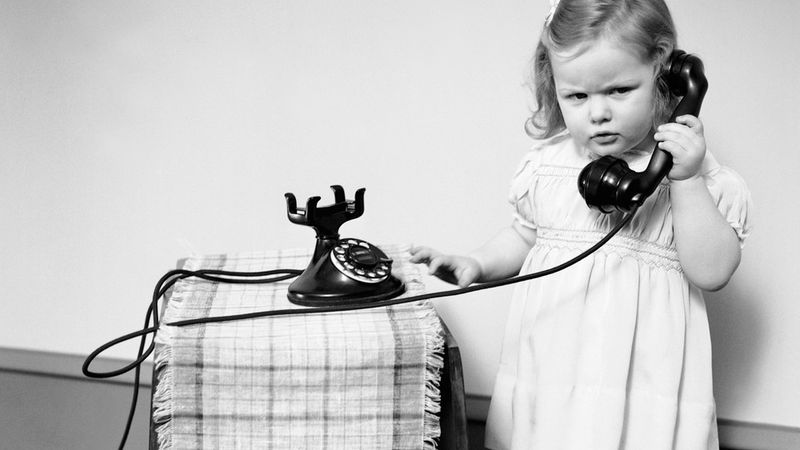
“Is your refrigerator running? Better go catch it!” Prank calls were the original viral entertainment before YouTube! Giggling kids would huddle around the phone, taking turns talking while others tried not to laugh too loudly.
Parents waged a constant battle against this telephone mischief. My mother could detect a brewing prank call conspiracy from rooms away—she’d materialize like a disapproving ghost just as we were dialing. The anonymity of landlines created a playground for childhood mischief that caller ID eventually destroyed.
Looking back, even those annoying calls had value. They taught us about consequences when angry neighbors called back, and creative problem-solving when we had to quickly invent explanations. Plus, nothing bonded siblings faster than successful telephone tomfoolery executed right under parental noses!
12. The Telephone Birthday Serenade
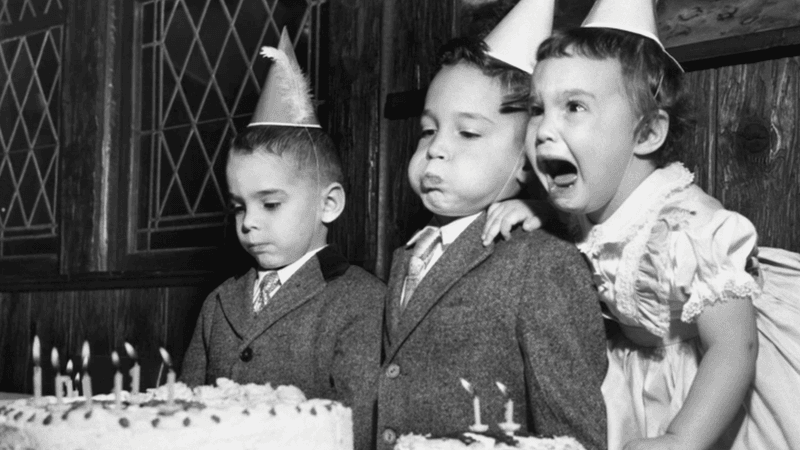
Nothing made you feel more special than the phone ringing off the hook on your birthday! Before Facebook reminders, people actually had to remember your special day—or at least respond to Mom’s not-so-subtle hints.
Grandparents would call at precisely 7:15 AM (the exact minute of your birth) to be the first to sing. Friends would take turns on conference calls, creating horrible but heartfelt cacophonies of the birthday song. Our family tradition involved passing the phone around the dinner table so everyone could add their wishes to long-distance relatives.
The birthday phone marathon created a daylong celebration that modern text messages can’t replicate. Each call required real conversation and connection—not just a quick “HBD” on your timeline. Those birthday calls made even ordinary birthdays feel like milestone events worth celebrating!
13. The Weather Emergency Phone Chain
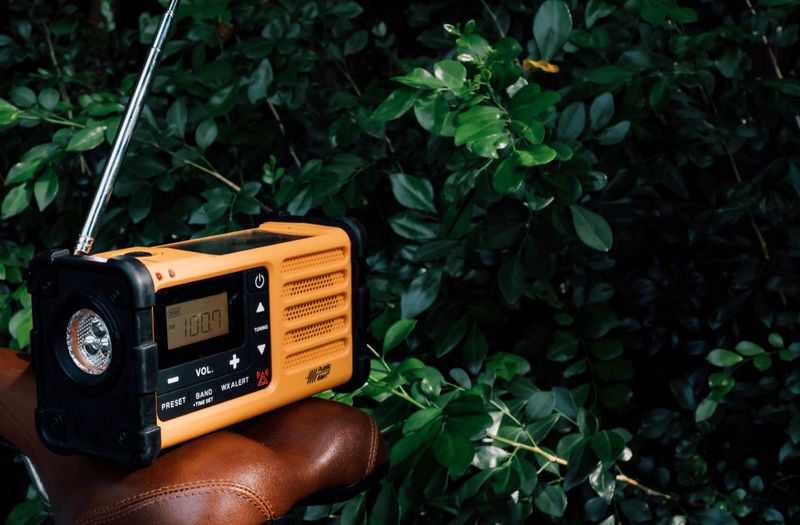
Snow days transformed our telephone into command central for a neighborhood intelligence operation! One ring meant school was canceled—unleashing a carefully orchestrated phone chain where each kid called three others until everyone knew.
During storms or emergencies, the family phone became our lifeline. I remember huddling by candlelight during a massive blackout while Dad called neighbors to coordinate generator sharing and food preservation strategies. The telephone connected isolated homes into a community support network.
Mom kept a special emergency contact list taped inside our cabinet—written in pencil so it could be updated as neighbors moved. Those phone chains created a web of mutual aid and information sharing that social media emergency groups still try to replicate today, though without the personal connection of hearing a reassuring voice saying, “We’ve got extra batteries if you need them.”
14. The Late-Night Secret Conversations
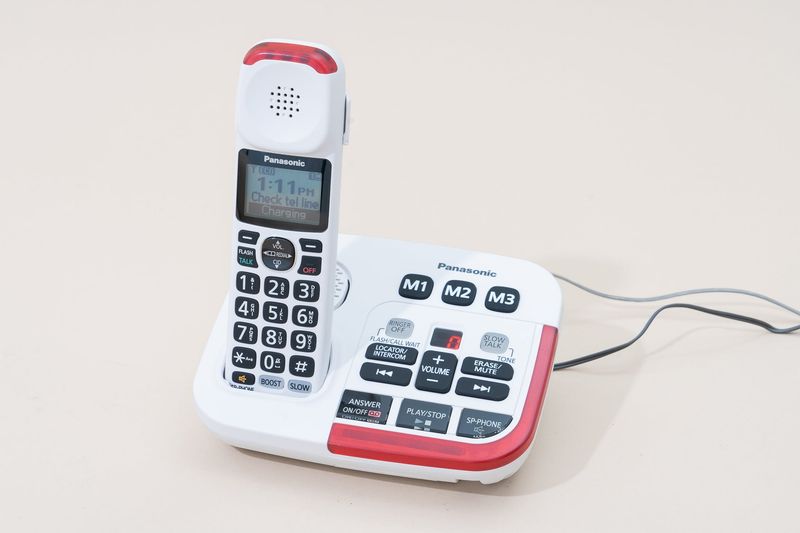
The house phone after midnight had magical properties—it transformed ordinary conversations into deep philosophical explorations! Something about whispering into that handset in the dark kitchen made both teenagers and adults share their deepest thoughts.
I discovered my parents’ true personalities during those late-night calls. Mom’s professional voice would soften as she comforted a friend through divorce. Dad’s serious demeanor melted away during late calls with his brother, their laughter echoing through the quiet house.
For teenagers, those forbidden after-hours calls were worth any punishment. My sister would unplug the phone in her room, sneak downstairs to connect it in the kitchen, and whisper for hours to her boyfriend. The shared family phone turned ordinary conversations into treasured secrets—each late-night call a rebellion against the daylight world of rules and schedules.
15. The Voicemail Time Capsules

“Don’t erase that message!” Some voicemails became family treasures, preserved for years on clunky answering machines. My mother kept my grandfather’s birthday message for three years after he passed away, just to hear his voice occasionally.
These accidental audio time capsules preserved moments technology wasn’t specifically designed to save. The baby’s first words, accidentally captured during a call to Grandma. The excited job offer that changed Dad’s career. The hilarious drunken New Year’s Eve well-wishes from usually proper Aunt Helen.
Our family answering machine tape became a museum of voices and milestone moments. We’d carefully protect certain messages, warning everyone not to record over “message number four—that’s when Sarah got into college!” Those preserved conversations created a family oral history that smartphone voicemails, easily deleted or lost in upgrades, rarely achieve.
